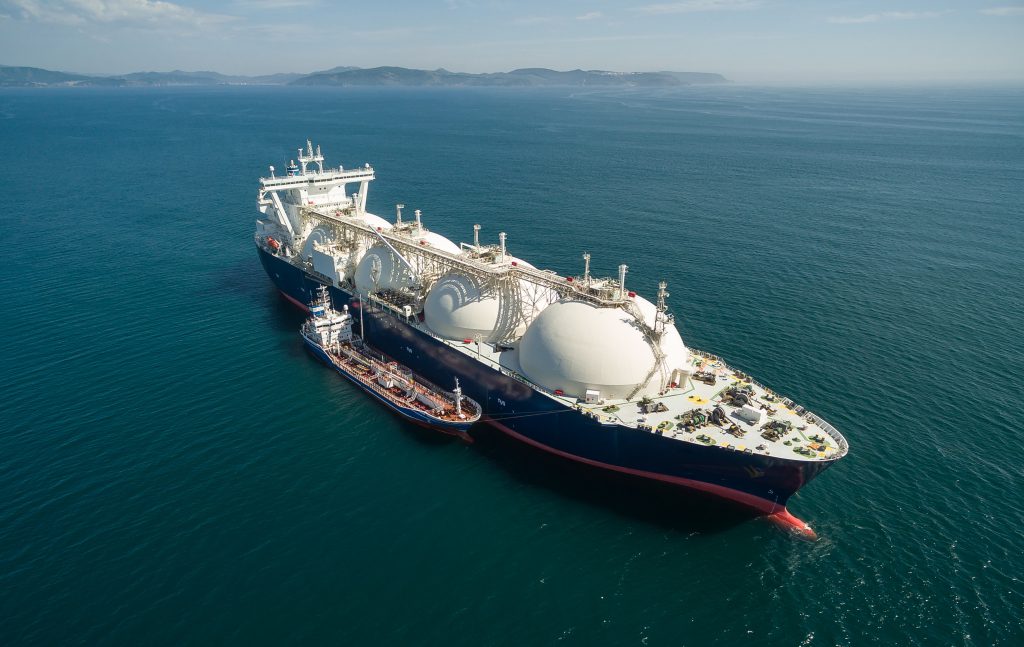Natural gas distributor DNG Energy’s floating storage unit (FSU) in Algoa Bay, South Africa, is set to commence operations, delivering liquefied natural gas (LNG) to secure energy for various industries and households. This initiative aims to create jobs and enhance skills development in the country.
The FSU will provide both offshore and onshore logistics, enabling ship-to-ship transfers for international vessels and facilitating LNG “milk runs” within South Africa.
In October, DNG received final authorization from the Transnet National Ports Authority to begin bunkering operations at the Port of Coega in the Eastern Cape. This license paves the way for LNG delivery in South Africa.
Next steps include completing the terminal infrastructure at Algoa Bay and finalizing the delivery of storage and bunkering equipment. Approximately 1,000 jobs will be created during the construction phase, with commercial production expected soon. Following this, DNG plans to operate its gas infrastructure and supply customers nationwide.
In an interview with Engineering News and Mining Weekly, group CEO Aldworth Mbalati expressed enthusiasm about the company’s readiness to offer LNG bunkers globally next year and to sell LNG locally through its smart LNG solution. This solution utilizes technology to store LNG in ISO-approved containers, road tankers, or mobile storage units, which transport LNG from DNG’s facilities to customer sites for various applications.
Mbalati highlighted the significance of the bunkering hub for both DNG and South Africa, positioning the country as a premier LNG bunkering hub in the southern hemisphere. He noted that this facility will also serve the global market, providing a strategically located refueling stop.
He explained that by allowing vessels to refuel at DNG’s hub, shipping companies can carry more cargo, as they will need less fuel for the initial journey. This efficiency leads to reduced costs for consumers and lower carbon emissions, as LNG produces up to 60% fewer carbon emissions compared to other fossil fuels.
This “winning solution” not only positions South Africa to earn foreign exchange through LNG exports but also attracts associated maritime services, such as maintenance, food, water, and crew changes. Mbalati envisions Port Elizabeth evolving into a key destination for the marine industry, catalyzing job creation.
Additionally, the project aims to enable LNG to play a vital role in South Africa’s industrial energy market. Mbalati emphasized that DNG Energy is committed to providing cheaper, cleaner, and more efficient fuel, fulfilling its mission to support local communities.

Leave a Reply